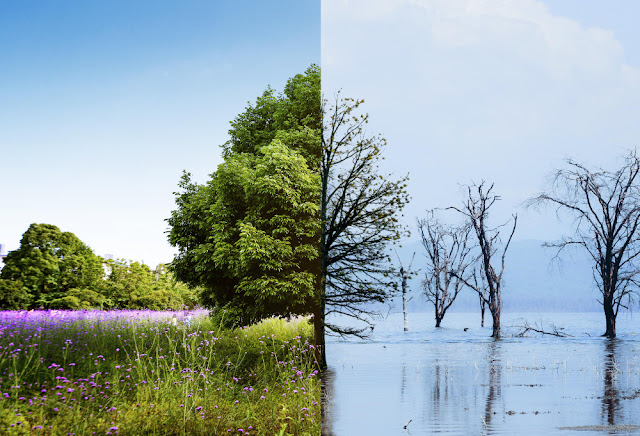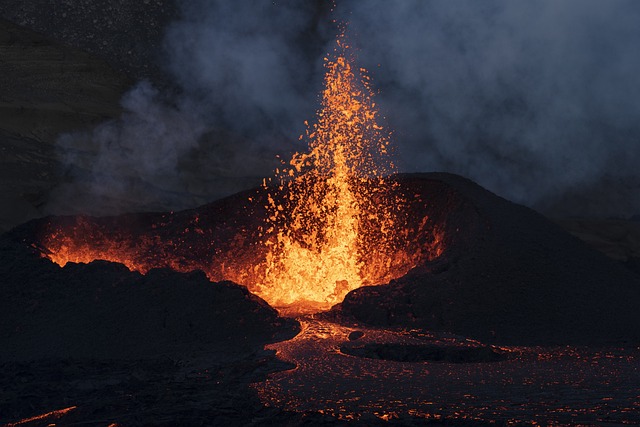 |
| Climate Change factors |
Impacts of Climate Change
People talk about rising temperatures and sea levels when they discuss climate change. Some ecological symptoms are well-known, but others take people by surprise. These are some unexpected effects of climate change and how they relate to environmental pollution.
1. Ticks Are More Common
Warmer weather is killing more animals in some species. The white-footed mice that once ate ticks are much harder to find, leading to more ticks in populated areas. This impact is especially concerning given factors like the housing crisis and the rising cost of living increasing the homeless population. Without the protection of a home, people are more exposed to tick bites and the diseases they carry.
2. Allergies Are More Intense
Weeds thrive in more extended periods of warm weather. They produce pollen and other allergens, leading to nearly year-round allergic reactions.
Continual allergies make it challenging to spot other concerning symptoms like dry eyes, which you could solve with dietary adjustments overnight. Instead, people have lingering symptoms from conditions they assume are allergies and can’t take care of their health needs.
3. Water Is Getting Murkier
Dirty water is one of the most concerning effects of global warming. More frequent and powerful rain systems wash sediment into water systems, bringing organic matter and bacteria. When these materials exist in drinking water, it increases the risk of contracting Vibrio bacteria, which causes symptoms like diarrhea and may lead to hospitalization.
Bacteria can also exist in drinking water that looks clear to the naked eye. Everyone needs to be aware of this issue so people work together to provide clean water and filters to those who need them.
4. Bison Are Shrinking
You might imagine that bison are animals that lived in historic times, but they’re an essential part of the modern food chain. They depend on wild grasses for their nutrition and have to migrate to less-nutritious plants when those grasses die from extreme temperatures.
Researchers found that bison bones from 40,000 years ago were 37% larger than modern bison bones due to better ecological conditions. Bison will continue to shrink as the planet suffers, leading to one of the strangest unexpected effects of climate change on the animal population.
 |
| Volcanoes became active |
5. Volcanoes Are Becoming More Active
The latest volcanic eruption in Hawaii has the world talking about future volcanic activity.
Researchers recently found that when Icelandic glaciers had 600 years to expand in the mid-Holocene years, there was little to no volcanic ash in Iceland or Europe. Glaciers are melting quickly due to climate change, so volcanoes will likely become more active in response.
More active volcanic sites will force people to move. Countries are already struggling to handle the influx of climate change refugees. More people will seek safe places to live if they can’t continue their lives around traditionally inactive volcanoes.
6. Mummies Are Deteriorating Faster
Historians and scientists know as much as they do partly because they studied what people left behind. Sometimes, that means studying mummies. Preserved and unpreserved gravesites depend on the environment to retain cooler temperatures that keep mummies intact.
Warmer weather and soggier soil create conditions where destructive mold thrives on mummies globally. It’s one of the most unforeseen effects of global warming – people may assume mummies are safe from climate change because they’re underground. Without preserved bodies, people may stop learning about previous cultures and lifestyles in the coming decades.
7. People Struggle With Worsened Mental Health
Worrying about the planet’s future is enough to stress anyone. However, climate change affects people’s mental health in additional ways.
Factors like higher temperatures, water pollution, and air pollution lead to conditions like:
- Anxiety
- Mood disorders
- Depression
- Suicide
- Aggressive behaviors
Depending on whether a person experiences a natural disaster caused by global warming, they could also develop post-traumatic stress disorder (PTSD). It’s an especially concerning issue considering that wage gaps and rising healthcare costs keep many people from accessing mental health professionals.
8. Lightning Strikes More Frequently
When someone talks about an unlikely event, they might compare it to getting struck by lightning. It can happen, but very rarely. Global warming is changing that.
More frequent lightning strikes are another one of the unexpected effects of climate change for most people. More CO2 in the atmosphere and warmer ground temperatures create additional updrafts that lead to lightning. Experts expect atmospheric warming to continue, so lightning will only form more easily with the planet’s current condition.
9. Sunlight Reaches the Polar Sea Floor
Sea ice is used to cover much more of the ocean’s surface. The darkness beneath icebergs allows species like worms, algae, and invertebrates to serve as both predators and prey in their natural habitats. They may not be as cute as otters or others, but they’re equally essential to the ecosystem’s survival.
Melting sea ice removes that coverage. Sunlight easily reaches the polar sea floor, making it too bright and warm for existing communities to thrive. The loss of biodiversity affects the entire food chain, which people will see through ripple effects within polar oceanic and mammal species.
10. Coffee Is Becoming More Scarce
You’ll likely enjoy an Arabica bean blend when you sip your next cup of coffee. It’s a common coffee bean because it grows worldwide – but it’s suffering under global warming.
A recent study found that coffee beans are highly vulnerable to climate change because increasing temperatures keep them from growing in their standard farm locations. Industry experts will have to find ways to grow coffee beans in new places or within facilities soon.
Continued warming over the coming decades could make it nearly impossible to produce coffee on the same global scale, increasing the price of beans, grounds, and coffee pods at grocery stores.
Combat Current Climate Change Effects
Global warming has many known effects, but some of its unforeseen impacts have taken people by surprise. Keeping an eye out for unexpected changes is part of helping the planet survive and thrive. By identifying new problems and finding solutions, global teams can make Earth a better place to live.
Author: Beth Rush is the content manager and Managing Editor at Body+Mind. She is a well-respected writer in the personal wellness space and shares knowledge on various topics related to nutrition, fitness, holistic health, mental health, and disease prevention. In her spare time, Beth enjoys going for runs and trying out new fitness trends.

